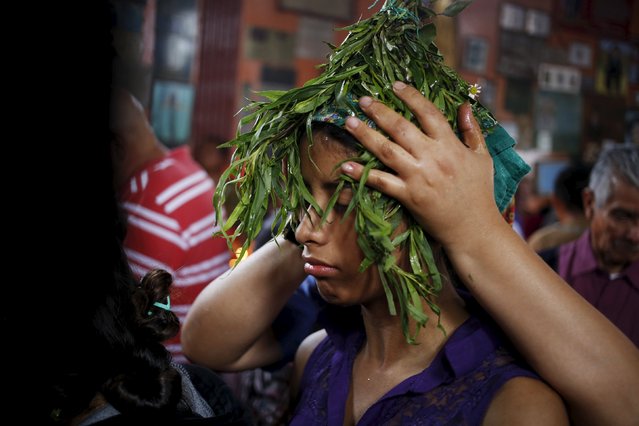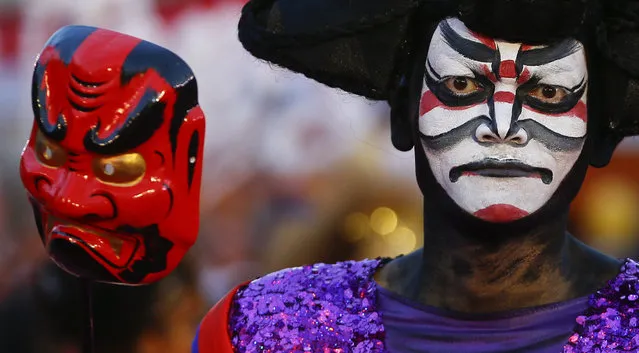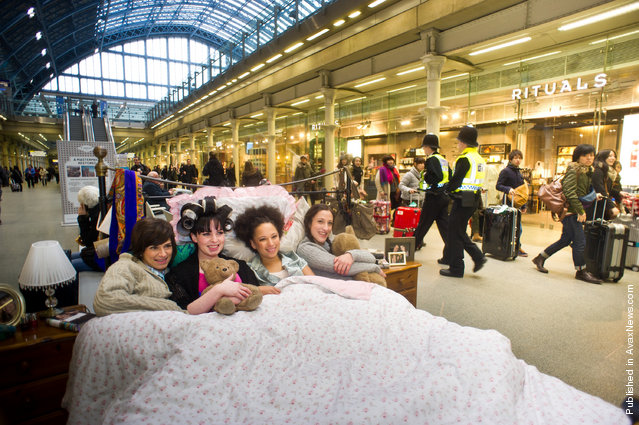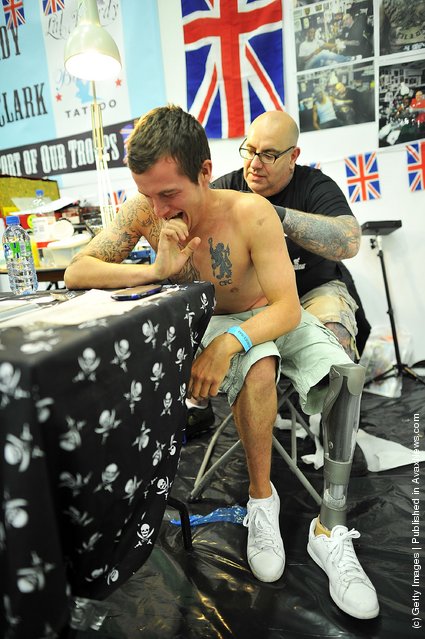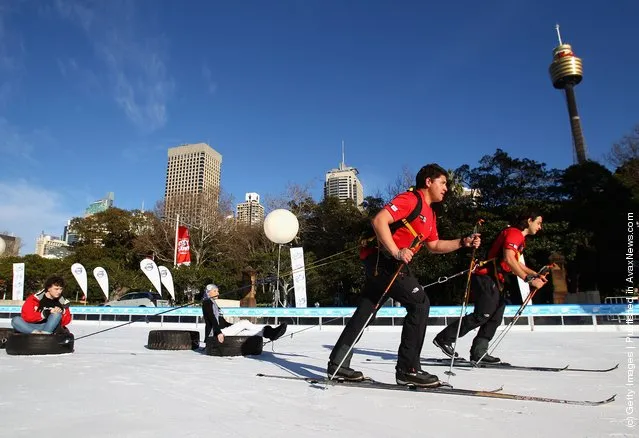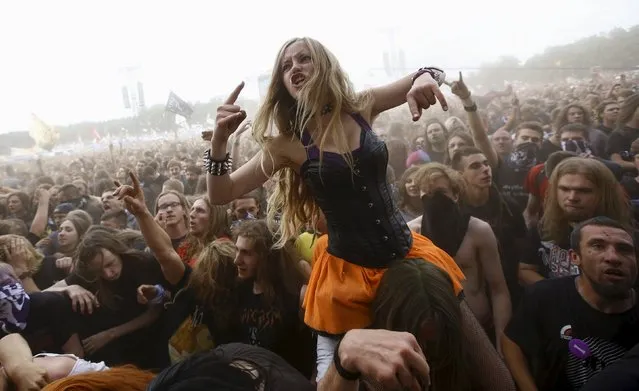
Revelers dance and shout as they listen to music, in front of the main stage, during the 21st Woodstock Festival in Kostrzyn-upon-Odra, Poland July 31, 2015. An estimated 200,000 people attended the ongoing festival, a brainchild of Polish journalist and social campaigner Jerzy Owsiak, on Friday. Owsiak initiated the event to say thank you to those who donated money to his GOCC charity organisation that delivers medical care for children. (Photo by Kacper Pempel/Reuters)
01 Aug 2015 12:21:00,post received
0 comments


